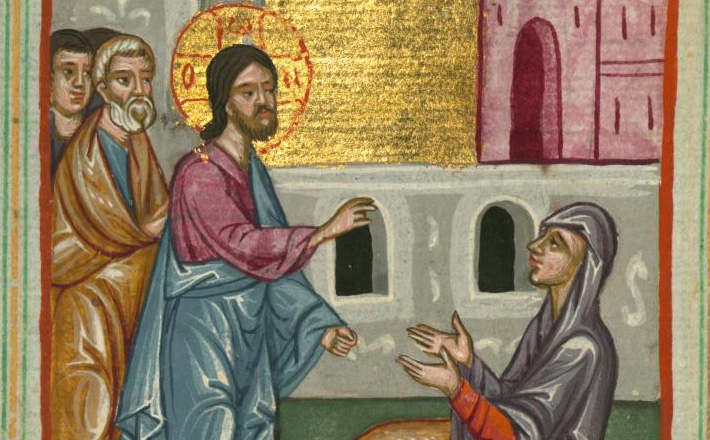August 20, 2017 Sermon, Matthew 15:10-28
Was Jesus a Racist?
Today’s Lectionary was designed by the Holy Spirit to meet us where we are today, this time and this week while we are still reeling from the events in Charlottesville.
It’s about expanding the holy community to include everyone.
Isaiah’s dream and vision about being a “house of prayer for all nations”
The meeting of the Canaanite woman in Matthew’s Gospel is meant to demonstrate how Jesus’ mission began to expand to the Gentiles. But first, did Jesus really call her a dog? Because she was a woman? No but that did that made her a second class citizen. He includes women but because she was not of the tribe of Israel.
On the heals of this purity discussion. Jesus is so progressive. He identifies intents of the heart rather that fastidiousness of the hands as a sign of purity. He has told them to watch what comes from their mouths. But what comes from his mouth? Dog? Was Jesus being a racist. Yes.
Yes product of his culture and time. He was very human. He had a blind spot, he didn’t realize where he was being exclusive, and he had his own human limitations. That should be good news for us.
Jesus had a log in his own eye, too, one that prevented him from seeing how he had a Pharisaic purity that he was holding to.
We all hold cultural stereotypes. Psychologists sometimes call this “implicit bias.”
Someone not of our tribe, who doesn’t look like us, surely there are some we would not be comfortable sitting with at a table, someone we would assume not like us.
Who do we exclude, where are our blind spots?
Christ had them, too
How are we culturally bound?
I’m afraid your pastor has fallen victim to my own implicit bias when I was on sabbatical last year, and at a holy well, no less. Isle of Avalon story. I had them pegged as noisy, under class, disturbing “my” quiet, “that wheelchair was probably for the out-of-condition mother,” I shamefully thought…oh God forgive me, it was for her son. And the loud banter was part of the healing to “normalize” the trip to the holy well waters. I helped lift her son back into the chair.
The woman actually uses a similar verbal technique on Jesus that he uses on the Pharisees. She is witnessing to Jesus. As Chris Bryant, NT prof likes to say, the only time Jesus lost an argument was with a woman and a foreigner.
We should, too.
Who is the unclean other? What does our own racism look like? What are the logs in our own eyes?
Was Jesus a racist? Well yes, he was bound by cultural bias, implicit and accepted prejudice. His breaking down barriers and being a progressive Jewish teacher hadn’t opened his blind spot. Only meeting face to face with the deepest needs of the other did that.
Are we prejudice. Yes. Do we still have demons that need exorcising, yes.
Great is thy faithfulness when we soften. Great is the faithfulness of one who points out our sin and clouds to barriers.
The lesson for us: Jesus changed. I’m in good company when my schema for prejudice changes and I see the human brother and sister before me. I’m in good company when I allow my heart to soften and my vision for the kingdom of God to expand, when the house of prayer and the table of feasting looks more like all races, all classes, those we would not normally include because of our bias, prejudice or racism. We must be willing to be changed, even as Jesus was, to be able to fulfill Isaiah’s dream of a house of prayer for “all nations”
We all have blindness. We are blind and bound by hidden logs and prejudices. Let the faithful witness of others’ pain and humanity soften our hearts as it did Jesus’.


